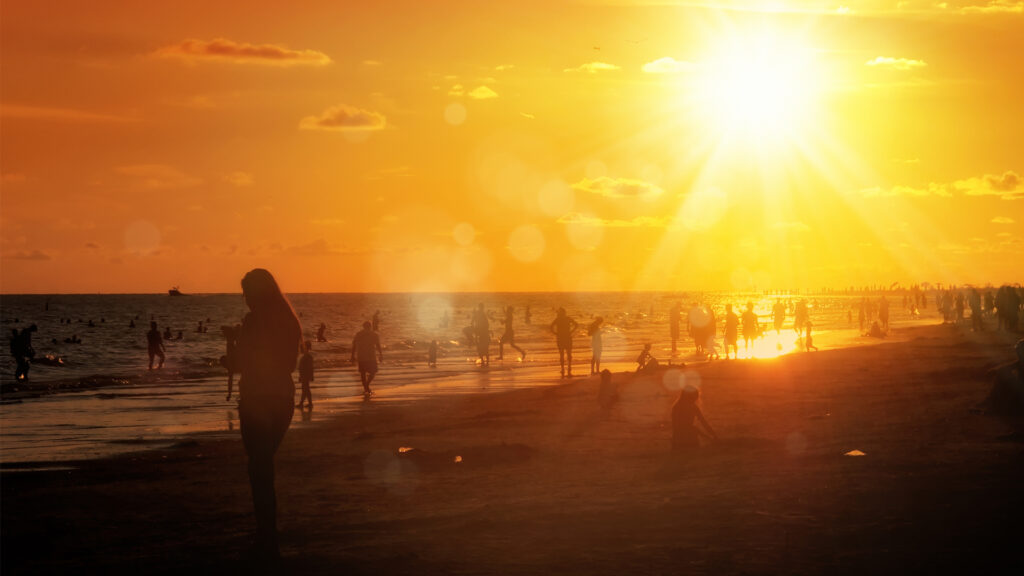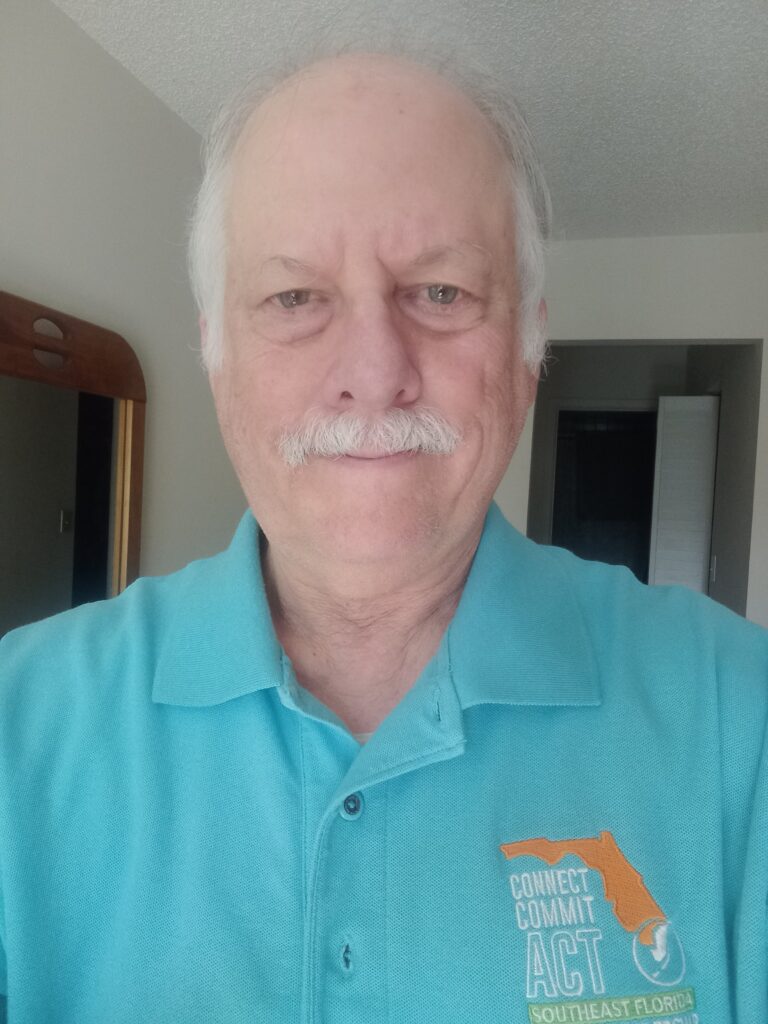By Scott Lewis
As you may have noticed anytime you step outside lately, the heat here in Florida is simply oppressive. Popsicles, shady trees and wet towels aren’t enough to cool us down right now. This level of heat is not for humans; We need to lower our body temperatures or we are, literally, in danger.
For those of us who are lucky to have safe, cool spaces available to us, we can find welcome respite. But that respite cannot obscure the forces responsible for baking our world and threatening lives and livelihoods: a fossil fuel industry that remains dedicated to extracting, selling and burning pollutants that are raising the heat across the planet.
While we go to the beach or the pool, this heat is suffocating farmworkers in the fields, setting the stage for wildfires in the west, prompting droughts and putting elderly and lower-income Americans dangerously at risk.

It’s too much to confront. And every day, it gets more extreme – each month setting a new record for high temperatures. What will happen next month, next year, next decade? How can we sustain human life on a planet that is simmering?
As a person of faith, I turn to hope. We are endlessly inventive and diligent and clever – we just need to apply these traits as soon as possible.
The first step is to understand how we got here. Over the past century and a half, we built a ferociously successful economy on extracting and burning fossil fuels. We powered trains, trucks, machines and buildings with gas and oil and coal. And for decades, we’ve looked away from the worst effects of our actions: Burning those fuels produces greenhouse gases that blanket the globe and trap the sun’s heat. And trapping that heat causes the oceans and the air to get hotter and hotter, each year upon each year.
The second step is to identify why this is still happening: The fossil fuel industry will not back down. In fact, it is doubling down, drilling new wells and building new pipelines and pulling these resources out of the ground day after day. And then, selling them to burn and burn and burn – trapping us all under heat domes that are not just unbearable, but lethal.
Third: We have to be cognizant about the obstacles ahead of us. We have been misdirected and misinformed by longstanding efforts by the fossil fuel industry to minimize the risk of these fuels. Decades ago, the industry documented a sophisticated scientific understanding of how the globe would heat, and predicted it with uncanny accuracy. And then it set about mobilizing against the evidence: to prevent moves to reduce use of fossil fuels, and to convince us that the answers lie in individual actions (such as recycling).
Rather than investing in new solutions, they squandered billions on the people and the systems that would enable it to continue to frack, mine, extract and – most importantly – pull in constant, astronomical profits. This included policymakers and politicians, from the halls of Congress to the Supreme Court to statehouses, as well as universities. Today, legislation that would – and should – enable us to invest in clean energy solutions is regularly squashed because of the sway of the fossil fuel industry.
Fourth: We need to remember that there is a different path. We can move off fossil fuels and reduce emissions. We have the technology to power our economy with clean energy. Just as humans created coal-powered trains and oil furnaces, we have invented solutions using solar, wind and water power.
We can fund and implement and use these technologies. We can slow the devastating rise in temperatures and the threat to human existence.
Now, finally, the next step: get out of the heat. Take action. Take to the streets. Get to the statehouses, to Congress, to the ballot box. And let’s do it together.

We need to find and wield our collective power: as voters, as citizens, as consumers. We need to demand the kind of big, systemic changes that are our only hope to slow the pace of change and give us a chance to survive.
People of faith need to show up with spiritual audacity, educating, energizing and mobilizing our communities to act. When people realize that generations to come may face even more devastating disasters – droughts, fires, floods, famines – they need the inspiration to turn despair into action.
While I love my cool apartment, I know that it is not where change will happen. The only way to address the heat is to join arms with others demanding change. The only way to beat the heat is to step out into it and challenge the power system.
This summer, that means looking toward November. It means electing climate champions who are willing to do the hard work of crafting and passing legislation that builds the foundation of a clean energy future. Which means we need to be all in on this election: getting out the vote, registering, voting.
It’s on us to turn this around. We cannot wait. We have the power, we have the technology. Let’s make it happen.
Scott Lewis is a Florida science and environmental educator who supports efforts to address climate change in the Sunshine State, through organizations including Dayenu, Third Act Florida and the Florida Climate Educators Network (FCEN).
If you are interested in submitting an opinion piece to The Invading Sea, email Editor Nathan Crabbe at ncrabbe@fau.edu. Sign up for The Invading Sea newsletter by visiting here.



